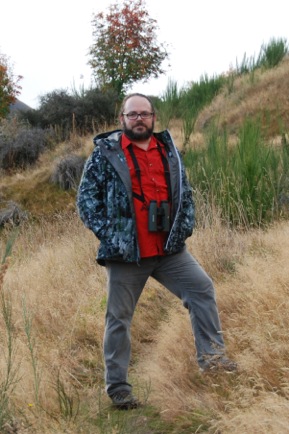
Jed Sparks, director of the Cornell Isotope Laboratory and professor of ecology and evolutionary biology at Cornell University, will present "North American Deserts: Ecological Surprises" at 3:30 p.m., Sept. 24 in the Hardin Hall auditorium (room 107).
Over the past decade, the responses of several desert systems to localized human activities like grazing and global changes have been examined. Several ecological surprises were observed that define the future trajectory of these systems and the organisms that depend on these ecosystems for survival. Sparks will relate three case studies that have demonstrated that the future of desert ecosystems is very much in doubt and show that our understanding of these unique ecosystems – although increasing – is inadequate. He will talk about responses to increased carbon dioxide concentration, changing precipitation and the phenomenon of woody encroachment, and how each of these perturbations will define North American deserts into the future.
Sparks is the director of undergraduate biology, director of the Cornell Stable Isotope Laboratory and professor of ecology and evolutionary biology at Cornell University. Sparks was an undergraduate at the University of Utah, completed his Ph.D. at Washington State University and did his postdoctoral work at the University of Colorado at Boulder. The Sparks lab focuses on the physiological ecology of plants, animals and microbes, and how this manifests in an ecosystem ecology context. The lab tends to focus on dryland systems and utilizes stable isotopes as a tool to understand ecological processes at scales from the organism to the globe. Projects in the lab are broad-ranging. They include the examination of the physiological ecology of dryland mosses and desert reptiles, global process modeling and assessment of human activities, such as natural gas extraction, and the recovery of pacific islands from invasive animals.
More details at: http://go.unl.edu/275f